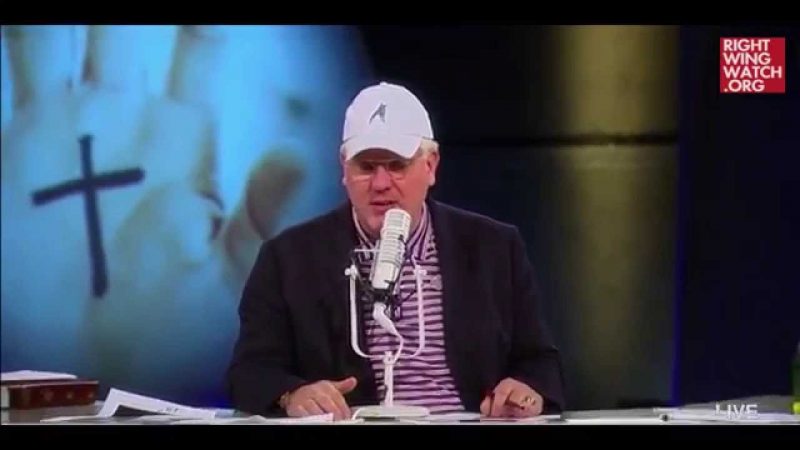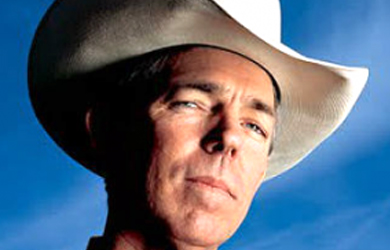With no academic credentials as a historian, David Barton toldThe Daily Show host Jon Stewart that his involvement in editing textbooks around the country was proof that he is a respected and esteemed historian. However, his work with textbooks if anything reveals his blatant partisanship and pseudo-scholarship.
As Mariah Blake writes in The Washington Monthly, Barton’s Christian nation mythology was indeed just one aspect of his role shaping the Texas textbooks as a consultant for the Texas School Board. Barton wanted to give a positive spin to Joseph McCarthy’s anti-communist politics and “purge the standards of key figures of the civil rights era, such as César Chávez and Thurgood Marshall.” As Blake writes, Barton tried to diminish the work of civil rights leaders like Martin Luther Ling Jr. by arguing “that they shouldn’t be given credit for advancing the rights of minorities. As Barton put it, ‘Only majorities can expand political rights in America’s constitutional society.’ Ergo, any rights people of color have were handed to them by whites—in his view, mostly white Republican men.”
Barton, who was once vice-chair of the Texas GOP and a paid surrogate of the Republican National Committee, tirelessly works to convince black audiences that they should vote for Republicans and oppose the Democratic Party because the GOP is responsible for black civil rights.
But Barton’s claims that he writes about more than just America as a “Christian nation” shouldn’t distract from the reason Texas School Board members invited Barton to edit their textbooks in the first place. In fact, then-Texas School Board member Cynthia Dunbar admitted that it was the board’s goal to promote religion through the state’s textbooks to counteract “a Biblically illiterate society,” and another ex-member Don McLeroy said that it was his job at the School Board to fight “secular humanists” because “we are a Christian nation founded on Christian principles” and “the way I evaluate history textbooks is first I see how they cover Christianity and Israel.”
Barton also told Jon Stewart that he was used to help write textbooks in other states, namely California. However, this is quite an exaggeration. Rob Boston writes that while Barton was invited by a conservative to advise California in its development of textbooks, his proposals went nowhere:
In 1998, a conservative member of the California Academic Standards Commission appointed Barton to an advisory position, asking the Texan to critique proposed social studies/history standards. From that perch, Barton attacked the portion of the standards that discussed the development of religious freedom, trying to remove every reference to separation of church and state.
He almost pulled it off. Commission members, unfamiliar with Barton’s agenda, seemed open to adopting his suggestions. They changed course only after intervention by Americans United’s Sacramento Chapter, AU’s national office and others.
Chris Rodda of the Military Religious Freedom Foundation notes that this isn’t the only time Barton embellished his work with other states, as he also worked with Michele Bachmann when she was a Minnesota state legislator to ensure that schools display the Declaration of Independence.
Such a record of exaggeration demonstrates why real historians, including Christian historians, who have followed David Barton have repeatedly criticized and dismissed his faulty “scholarship.”







